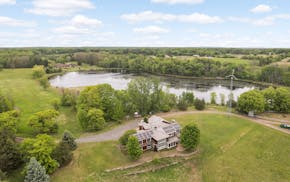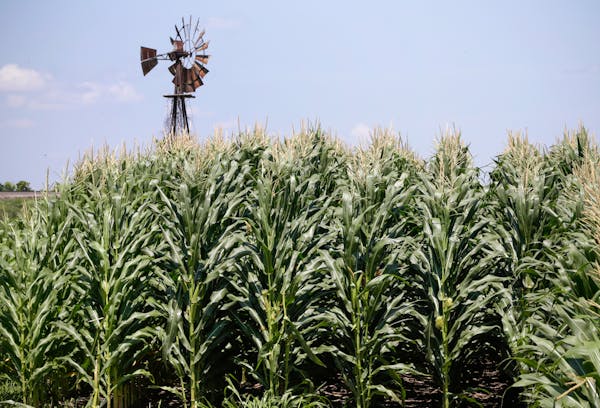Now that the state approved funds to help build a $200 million biomanufacturing campus, attention now is on where the complex will land.
"We're looking at and evaluating a number of sites," said Douglas Friedman, CEO of Minneapolis-based Bioindustrial Manufacturing and Design Ecosystem (BioMADE), the nonprofit developing the facility.
BioMADE is seeking 300 to 1,000 acres of land, ideally within 90 minutes of the Twin Cities, Friedman said. Access to utilities, water, rail and feedstocks will be important.
The goal is to identify a site by the end of the year.
Biomanufacturing uses feedstocks such as corn, soy and sugar beets to make a wide variety of goods including chemicals, nylon, protein, silk, concrete and polyurethane. The U.S. has not previously had the infrastructure for biomanufacturing to compete with international producers,
The state's support was part of the jobs and economic development bill, which calls for investing $400 million in the Minnesota Forward Fund to match funds from federal programs. That package also included $250 million to leverage federal investments in Minnesota from the Creating Helpful Incentives to Produce Semiconductors Act (CHIPS).
"Minnesota is ready to be a leader in bioindustrial manufacturing," said Gov. Tim Walz in a statement. "From the farm to the manufacturing floor, bioindustrial manufacturing holds real promise for industry, farmers and workforce in the state of Minnesota and the nation as a whole."
The appropriations included $100 million for two projects: the biomanufacturing campus and an aerospace center for research and development.
Kevin McKinnon, temporary commissioner of the Minnesota Department of Employment and Economic Development, said it is not clear how much of the $100 million will ultimately go to the BioMADE project.
"We're not there yet," said McKinnon. BioMADE will need to submit an application for state funds as project details take shape.
DEED is administering the Minnesota Forward Fund.
"This pilot project will allow Minnesota to be a leader in biomanufacturing and create new jobs in our state," said Sen. Kari Dziedzic, DFL-Minneapolis and majority leader of the Minnesota Senate.
Sen. Aric Putnam, DFL-St. Cloud and a sponsor of the bill, called the campus a game-changer.
In March, BioMADE received a commitment for as much as $450 million more from the U.S. Department of Defense, which previously gave $87.5 million to the organization.
BioMADE is a national network and now has 218 members in 32 states including companies, colleges and nonprofits. Industry members include 3M and Cargill.
"This is part of a broader national initiative," said Friedman. BioMADE ultimately hopes to develop 12 to 15 biomanufacturing projects across the U.S.
Friedman said the group wants to start making connections with communities and economic development groups across Minnesota that could be involved in the project.
"We're now looking for partnerships across the state," said Friedman.

Minnesota Department of Health rescinds health worker layoffs

Eco-friendly house on 30 acres near Marine on St. Croix listed at $1.6M

DOGE cuts federal money for upgrades at Velveeta plant in New Ulm

